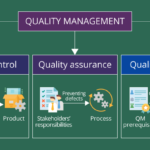Since cyberattacks are growing in frequency and quality, companies struggle with costly outcomes. However, most businesses now know the importance of using the latest cybersecurity practices to protect their sensitive data and companies’ needs and prevent costly mistakes that may ruin or damage their business.
With the growing number of threats to businesses, improving security is essential. Identifying threats, preventing them, detecting or disrupting hacker attacks at the earliest stages reduces the business impact and the potential for damage to reputation.
There are several effective and practical-proven ways to reduce your organisation’s exposure to the most common types of attacks on any device or system exposed to the Internet. And prevention is the key to success. Let’s explore the nine best ways to prevent cyber attacks. Prevention is key, and in this article, we’ll take a look at nine ways to prevent cyber attacks.
Get a Robust Cyber Security Solution
Cyber security is essential in 2022, and every business now knows how it is vital to have in-house security teams. While some hire cyber specialists for their team, others use specialised services that can cover every aspect of attack prevention and also improve the skills of exciting teams.
If you are looking for the best cybersecurity specialists, then it is advisable to hire a professional CMIT Solutions that can help your business to stay secure against common and specific attacks. You can check your weak spots to prevent attacks, power up your services with the latest security technologies, and organize a more protected workflow.
Ensure Endpoint Protection
Endpoint security refers to the common cybersecurity practice of protecting endpoints or entry points of end-user devices, including desktops, laptops and mobile phones, from being exploited by actors and campaigns. This is why companies can now use endpoint security systems to protect these endpoints both in the cloud and on a network from cybersecurity threats. Endpoint security is usually considered cybersecurity’s frontline, representing the first thing companies take to boost their security.
Backup Data Regularly
When your device is infected by malware, virus or entered by a hacker, you have a high risk that your sensitive data may be damaged, deleted or stolen by ransomware, preventing you from accessing it. This is why backing up your data can help, allowing you to always have a copy of any information which you can always access.
You need to ensure that the external hard drive you use for backing up your data is not always connected to the device you are backing up, both physically or via a local network connection.
This is why the best way to protect your data from malware is to restore information from clean backups. This is because even if you will pay a ransom, there is only a small chance that you will get the decryption key. Restoring data from backups is simple, more reliable, cheaper, and helps you prevent this type of attack.
Use Multi-factor Authentication
Multi-factor authentication (or MFA for short) requires two and more factors to verify a user’s identity and allow them to enter an account. This system is known to boost security and reliability, making sure that every authorised user is who they represent, thereby reducing the chance of unauthorised access. This is why MFA is widely used in healthcare and financial applications and is considered to be more secure than passwords.
Penetration Testing
Penetration testing is a common practice among modern tech companies that want to check their weak points and prevent hacker attacks. Cyber specialists use this practice to mimic real attacks and check are weak points of an organisation. By using penetration testing UK, companies are able to boost their knowledge and vulnerable places in their IT ecosystem and improve security.
Keep Your Software Up to Date
Timely software updates are critical for keeping your business secure. Cyber attacks usually happen due to outdated software that cannot offer high security. Hackers know what their weaknesses are and can easily gain access to your network. So if you want to ensure your software is always updated, we recommend you invest in a patch management system that will be responsible for all software updates and improving security.
Access Management
Access management is another great way to protect apps and data you hold by ensuring that only the proper user has access to a specific resource at the right level of trust. Your company can control access by making granular policies, allowing only authorised users to do their jobs effectively.
Access management also allows you to check user access permissions as well as risks they have associated with each login, aiding extra steps in authentication when the user’s context changes or a high level of risk appears.
Use Secure Wifi
Most network devices pre-configured with default administrator passwords are set up to ease registration. And these default passwords are too easy to hack for cybercriminals, providing only a medium level of protection. This is why when you change the password; it is more challenging for attackers to access a device. Allowing only authorised individuals to access your network keeps your business much more secure. In addition, proper encryption of your wireless information prevents any user who might be able to access your network from viewing it.
Inform Staff
Reports show that lack of knowledge usually is the biggest risk. Since companies now have employees working remotely, it is hard for them to properly protect their information and devices from dangerous access. This is why it is essential to train and inform staff about common ways hackers steal information and how they can protect their devices. This is why it is best to hire experienced cybersecurity teams that will train your employees and keep your business secure.
Final Thoughts
Nowadays, many companies know that it is vital to protect their data from being stolen or modified by attackers. However, it is not necessary to face costly mistakes from not protecting your business. This guide shows you the best ways to protect your sensitive information and prevent hacker attacks.













